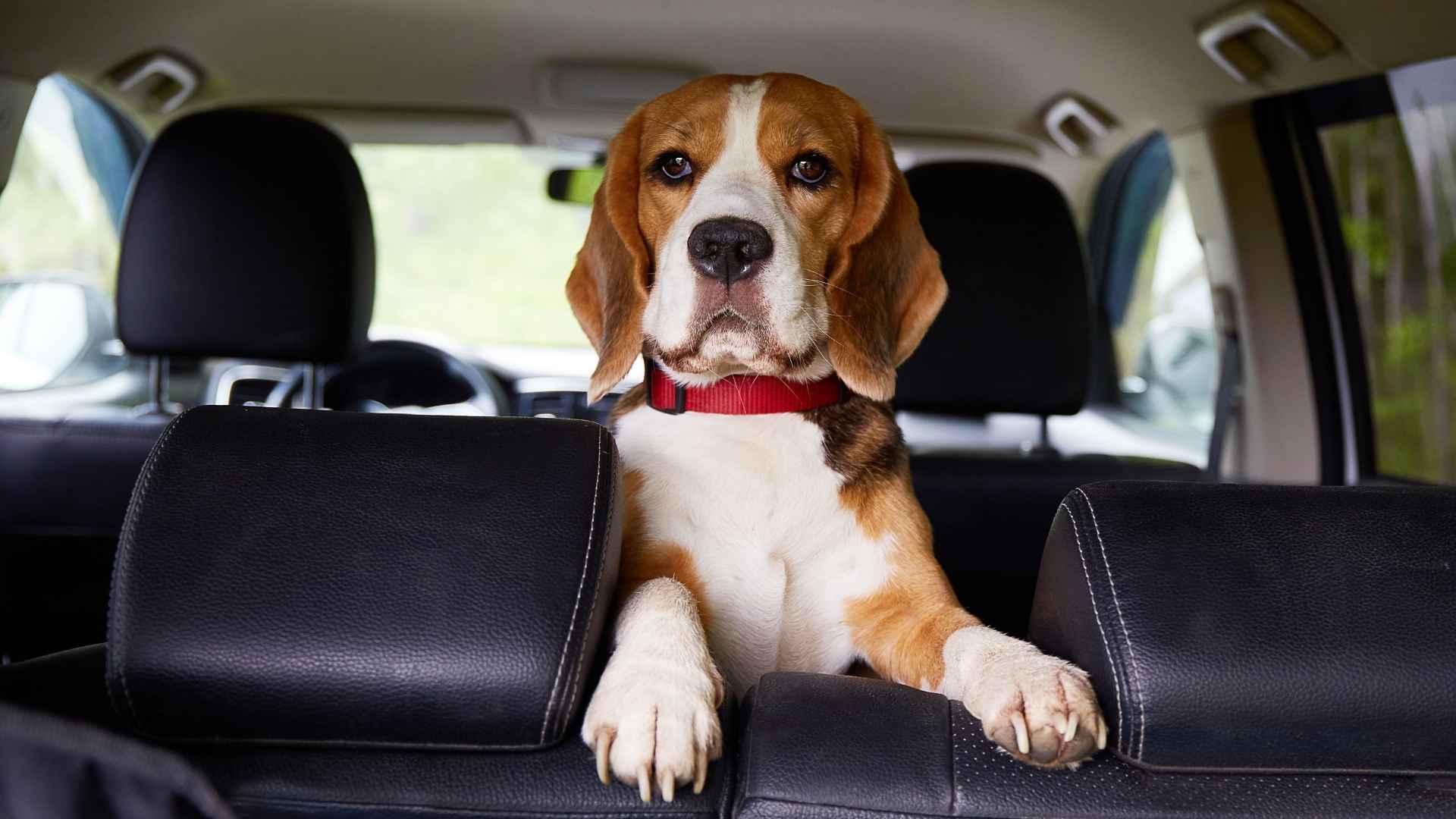You’re in a car and suddenly the nausea and unease associated with motion sickness set in. This is one of the most vexing experiences during car rides, especially on road trips that many of us go through. Car sickness is not just for humans; our furry friends also have to deal with it.
But do you know why dogs experience car sickness? Age is one factor; young dogs and puppies are more prone to motion sickness. Stress also plays a part in the nausea and vomiting that dogs can experience while traveling, according to WebMD.
Here’s a review of 7 dog breeds more likely to struggle with motion sickness.
Car Sick Dog Breeds
1. Boxer
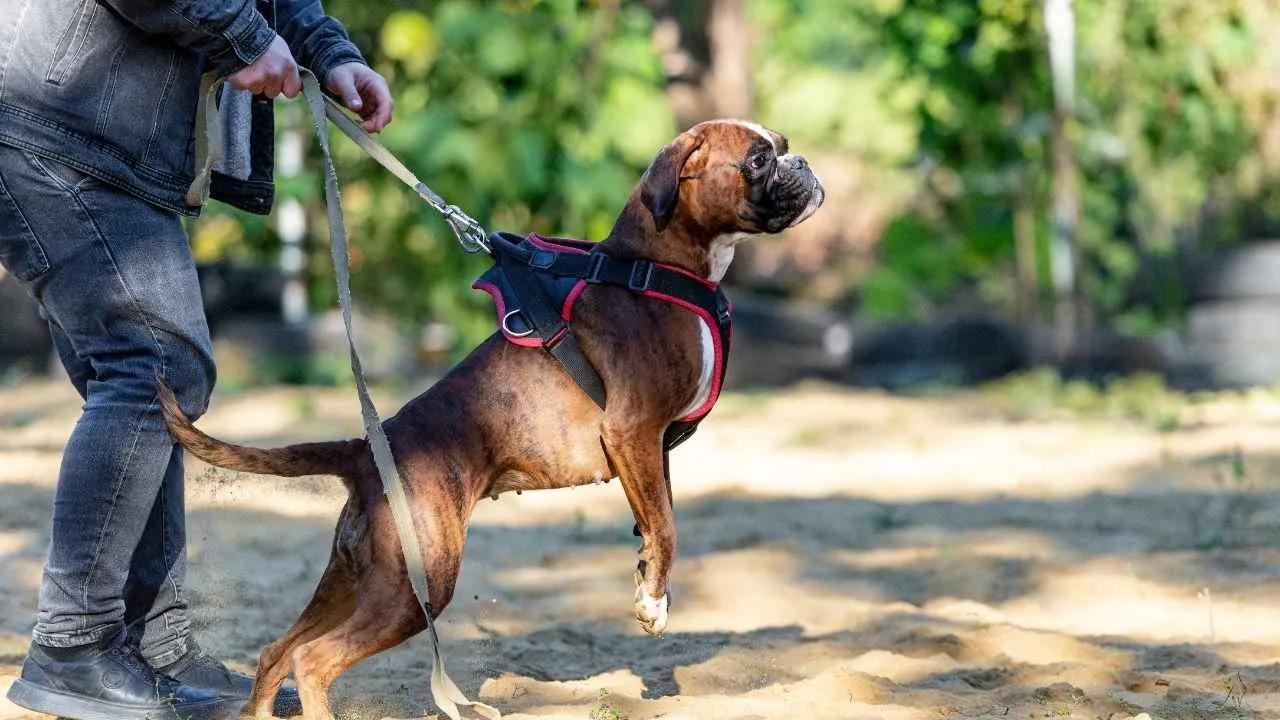
Boxers are always young at heart with a playful nature that keeps them looking for more fun. These pups have an adorable droopy face and a sturdy build that catches our eyes. They consistently ranked among the top 20 most popular AKC breeds.
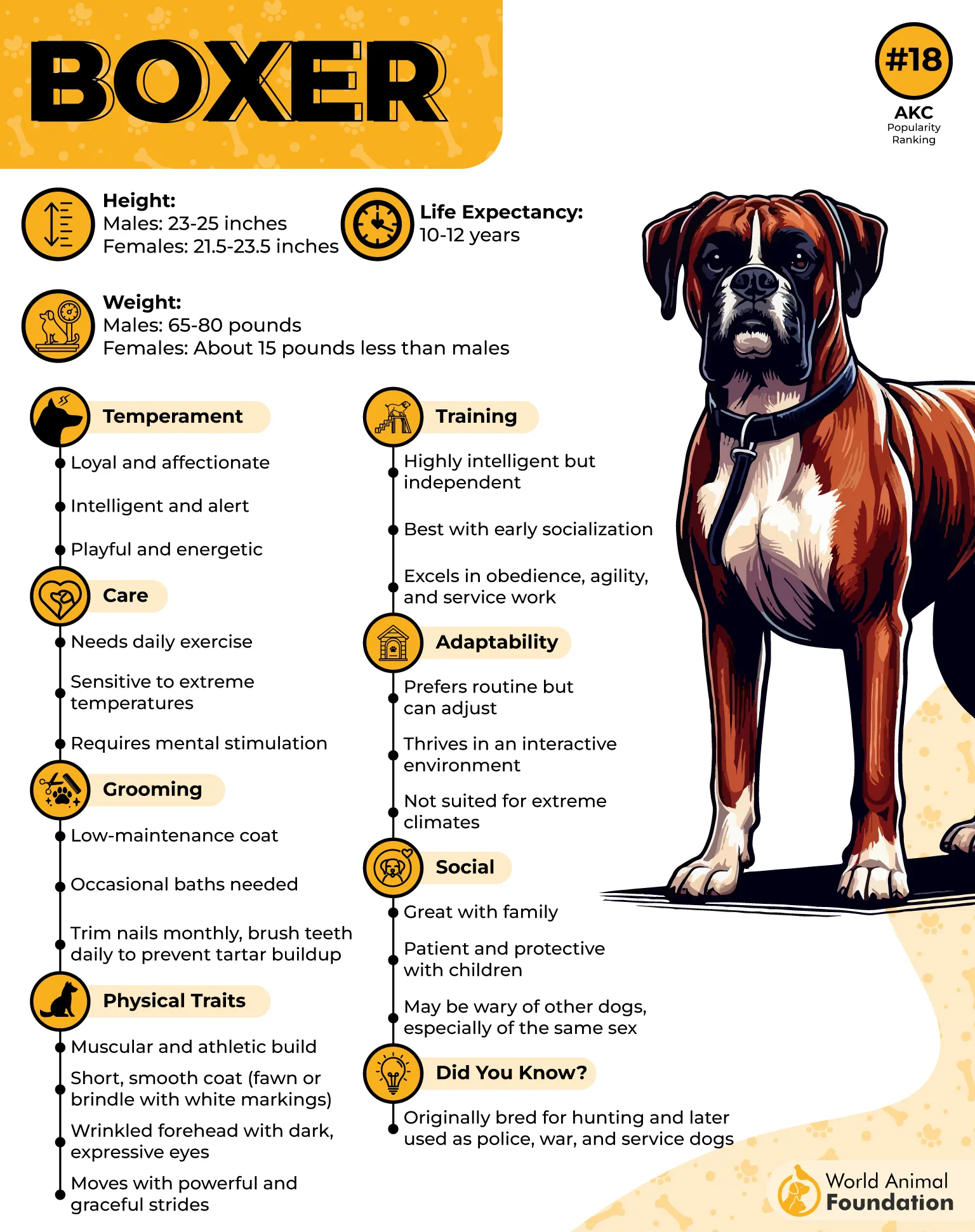
Quick facts:
-
Size: 21.5-25 inches. 50-80 pounds.
-
They were originally bred to hunt large game like wild boar and deer, etc. Nowadays, they’re one of the most affectionate dogs.
These intelligent dogs need a lot of mental stimulation, while their energetic nature pushes them to stay on the move. Their enthusiasm to keep springing and bouncing makes them prone to motion sickness.
If they haven’t been trained properly, they can experience anxiety before car trips and might end up vomiting. If your Boxer is experiencing car sickness often, make sure they’re facing forward during travel. This will reduce nausea and other symptoms as they’ll receive less nauseating visual cues.
2. Border Terrier

Border Terriers are tough and agile, but cheerful Terrier dogs that make amazing family dogs. They have unique, wiry coats that come in red, blue, blue and tan, tan, and wheaten colors.
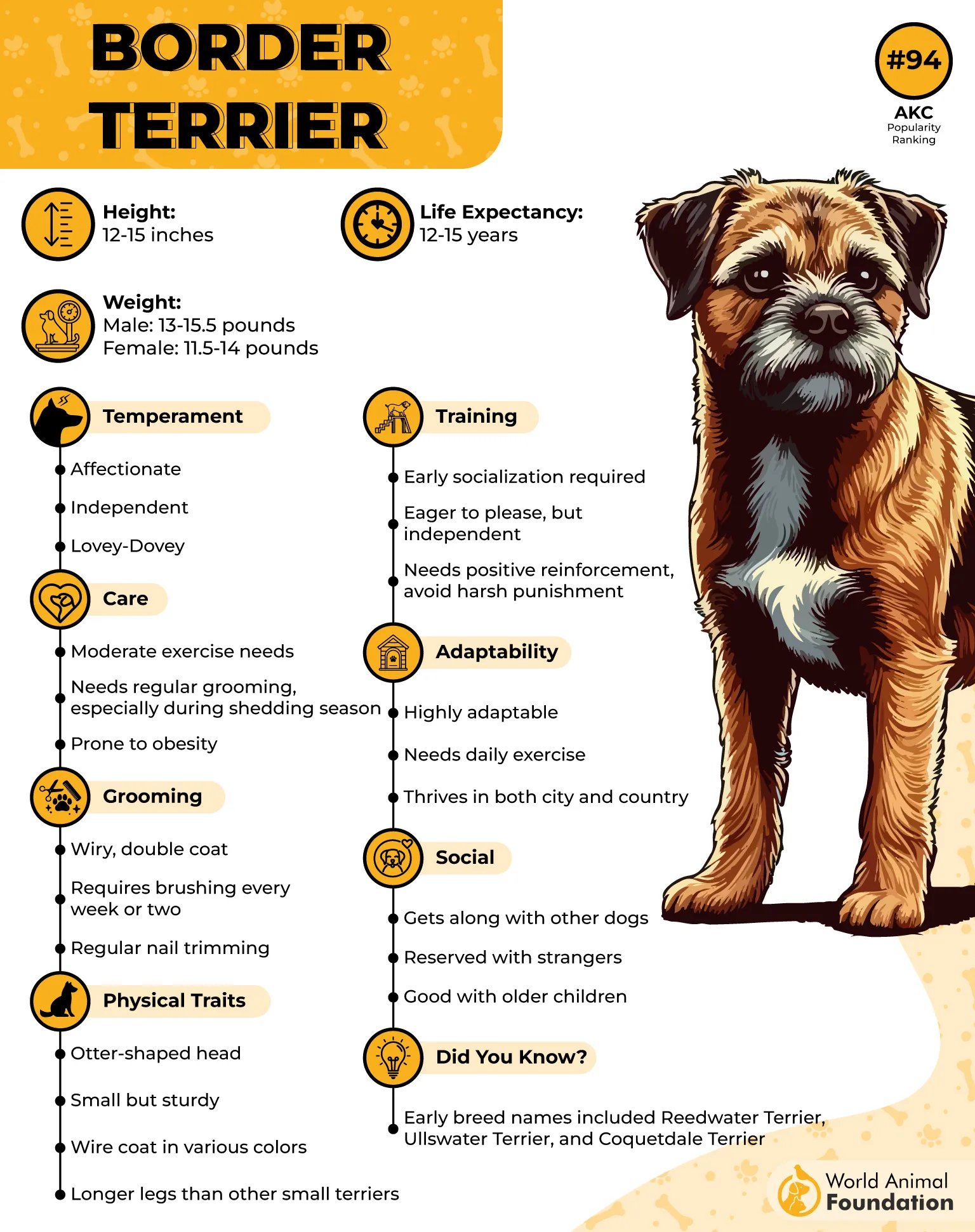
Quick facts:
-
Size: 12-15 inches. 11.5-15.5 pounds.
-
One of the most recognizable features of Border Terriers is their “otter head” shape.
These canines have a really sweet nature and love playing outdoors with their favorite humans. They get along well with children and other dogs, but their prey drive can get triggered around cats and squirrels, etc.
Border Terriers can experience some discomfort or car sickness straight away because they can’t stay inside the cars. These spunky little pooches are alert and sensitive; they’ll immediately notice their surroundings blur in case of sudden motion.
Motion sickness in dogs can be managed by lowering the car window a bit to create a balance between air pressure inside the car and outdoors.
3. Border Collie
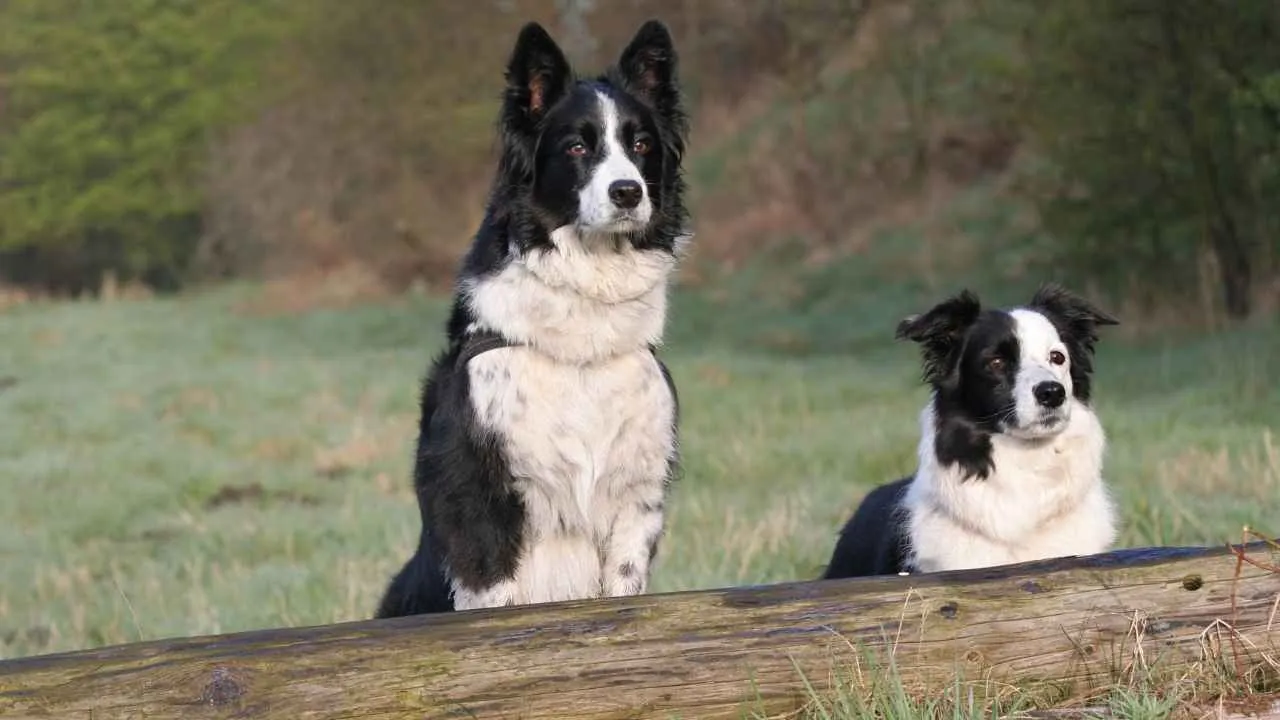
Border Collies aren’t just one of the smartest dogs with an affectionate nature; they’re also one of the many dogs that tend to experience car sickness.
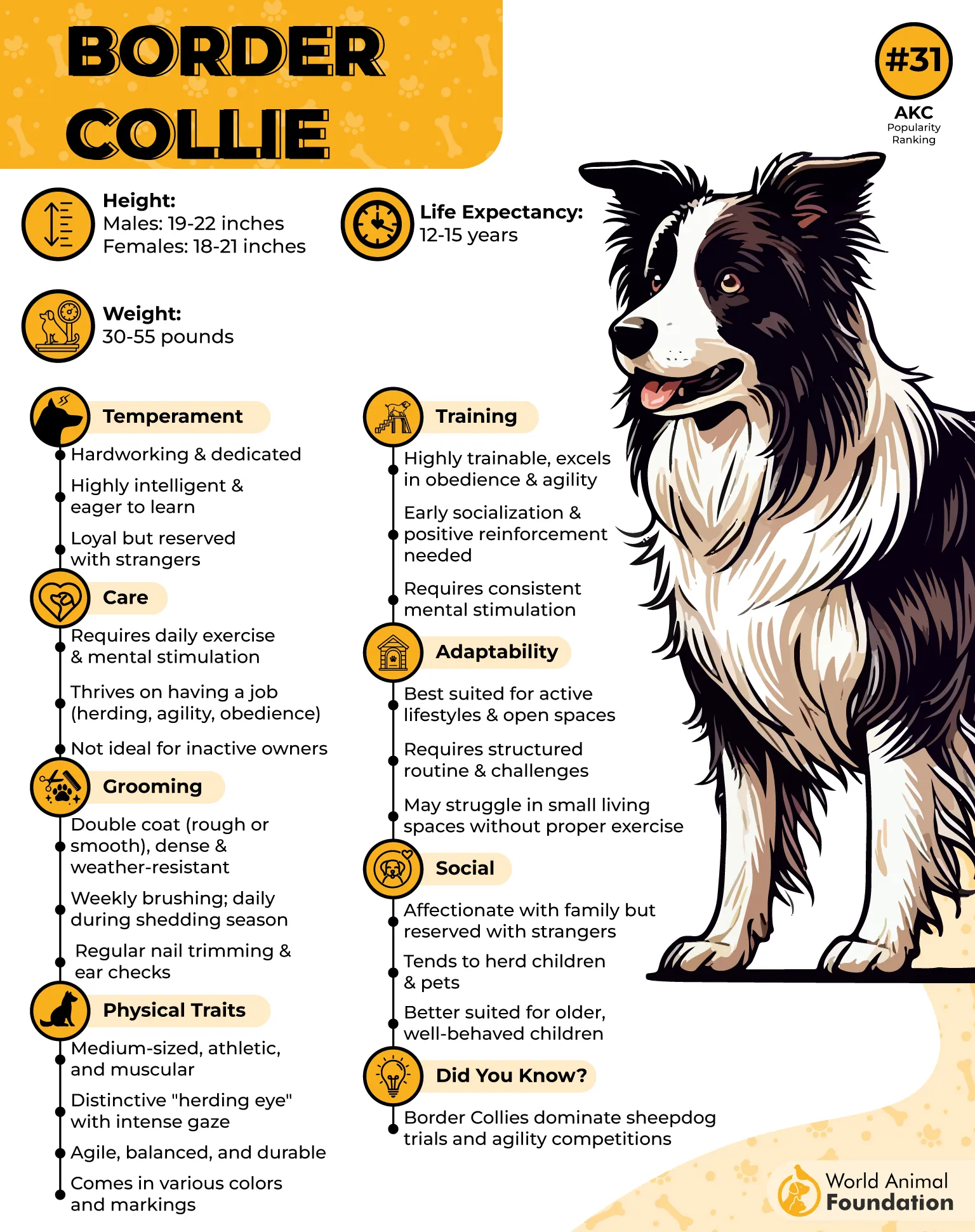
Quick facts:
-
Size: 18-22 inches. 30-55 pounds.
-
Border Collies belong to the herding group.
Border Collies are vigorous in nature and enjoy playing with both adults and kids. While they’ll enjoy car travel with you, experiencing car sickness is also a possibility with these pups. Gradual exposure to car rides helps your dog become more tolerant of them.
If your Collie is prone to anxiety, you should talk to your veterinarian about anti-anxiety medication suitable for your pooch. These smart dogs have razor-sharp instincts, which also make them sensitive. Loud noises and stimuli can also cause them to get sick or anxious.
4. French Bulldog

French Bulldogs are sturdy but adorable small dogs with big hearts. These dogs make us want to cuddle them hard with their sad eye expressions, pointy ears, and droopy faces.
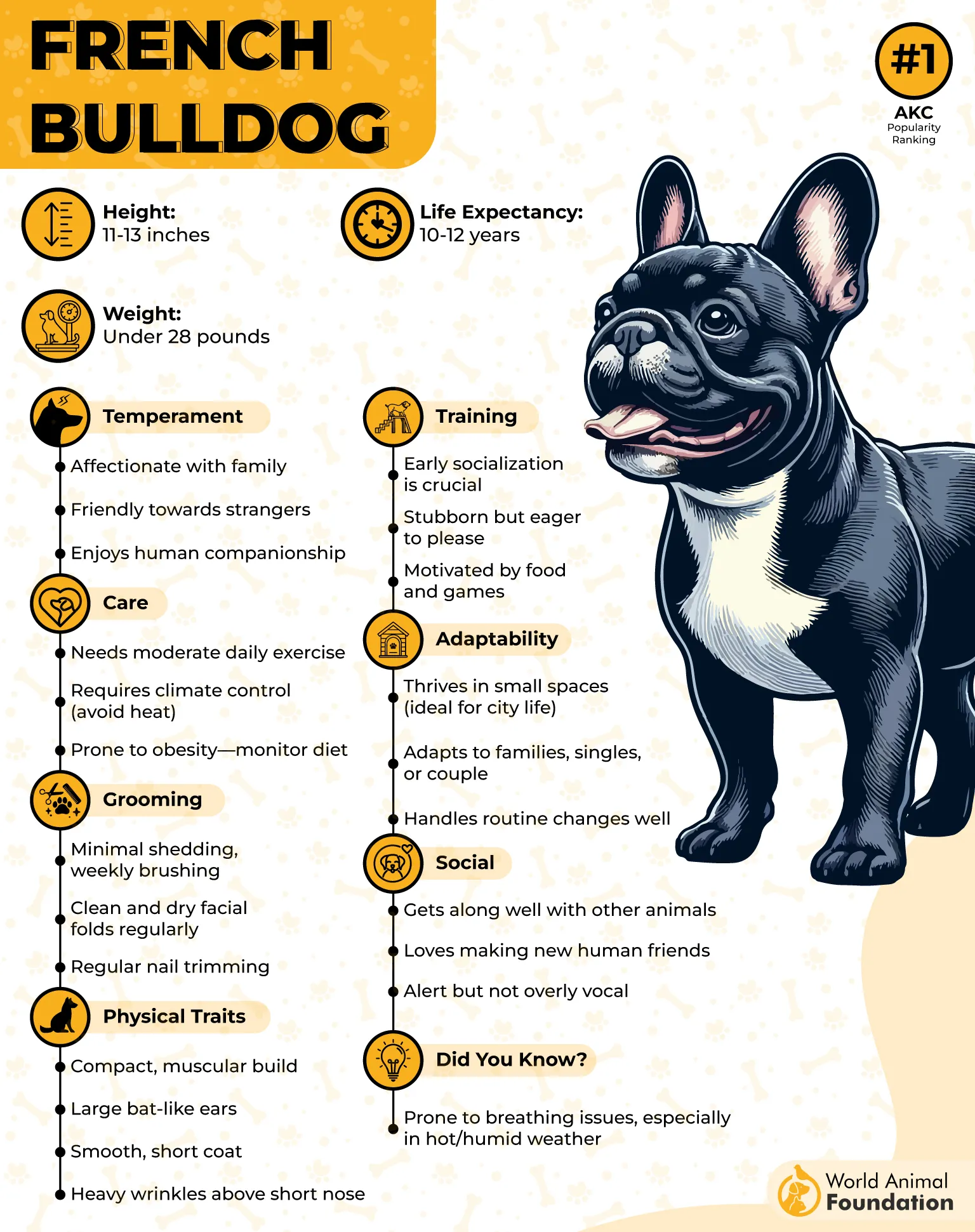
Quick facts:
-
Size: 11-13 inches. Below 28 pounds.
-
Frenchies are generally quiet dogs and don’t bark a lot. They’re still very watchful.
Due to their compact size, Frenchies are travel-friendly dogs, but not without a possibility of car sickness. Frenchies are easygoing pups and can stay calm by your side in limited spaces like cars. These small dogs will need a doggie seat belt to keep them from losing balance.
Frenchies are brachycephalic dogs, and this trait can contribute to these pooches becoming motion sick. Being a flat-faced dog causes them to have breathing difficulties. If your car has poor ventilation, this can cause them extra trouble (read: nausea).
Make sure your car has ventilation for fresh air to help them breathe. It’s also better to avoid longer drives during the warm months with these pups.
5. Dachshund

Dachshunds are unique dogs with long bodies, long tails, and small legs. Also called “Wiener dogs” and “badger dogs”, Dachshunds were bred to hunt badgers. These charming dogs make amazing family pets and have a playful and protective nature.
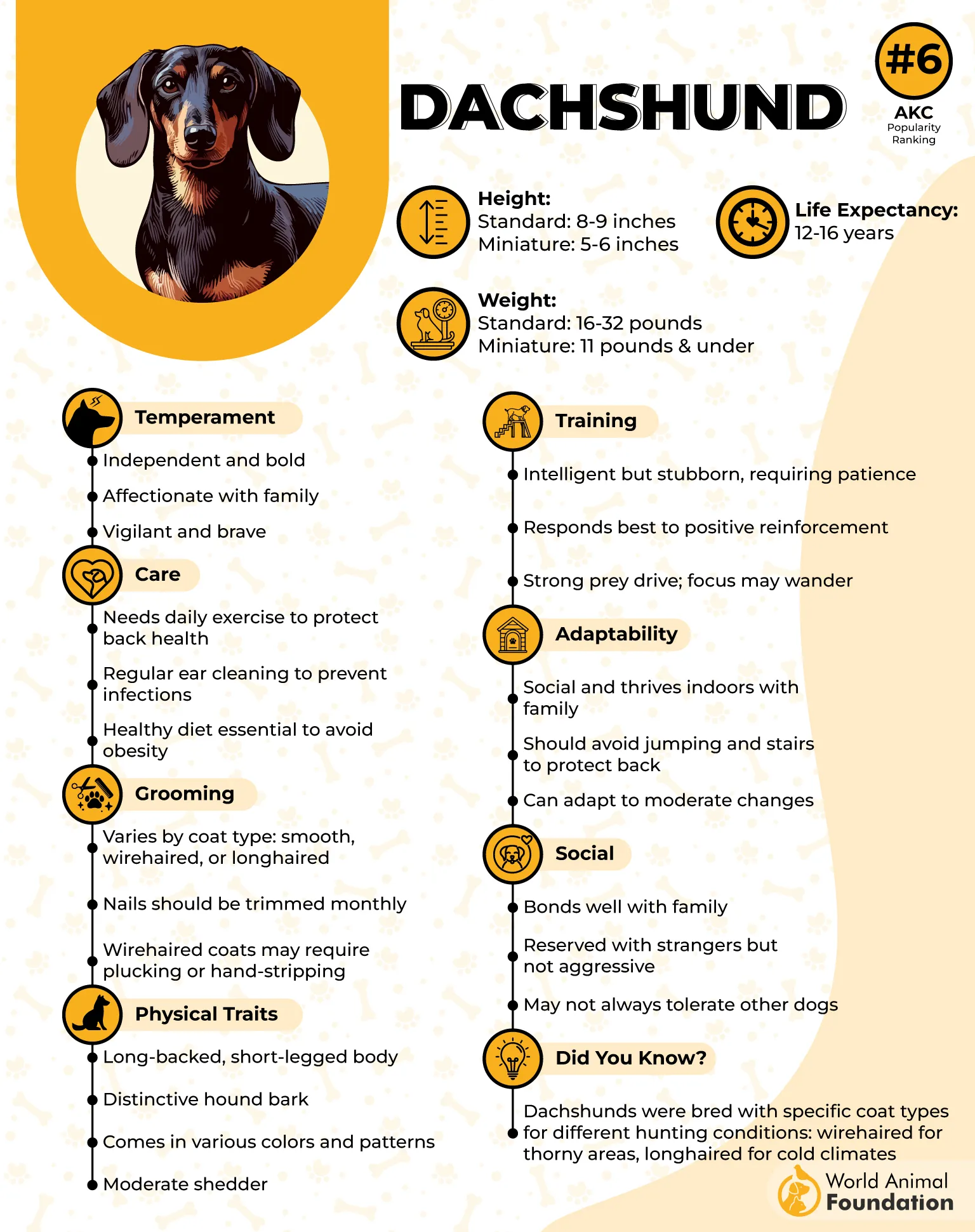
Quick facts:
-
Size: 8-9 inches and 16-32 pounds (standard). 5-6 inches and 11 pounds or less (miniature).
-
Dachshunds are independent thinkers due to their hunting background. They can exhibit a stubborn streak at times.
From following you around in your house to taking short walks in dog parks, Dachshunds enjoy bonding with you. Due to their long bodies, Dachshunds might find it hard to balance themselves inside moving vehicles. This can cause motion sickness in these pups.
6. Beagle
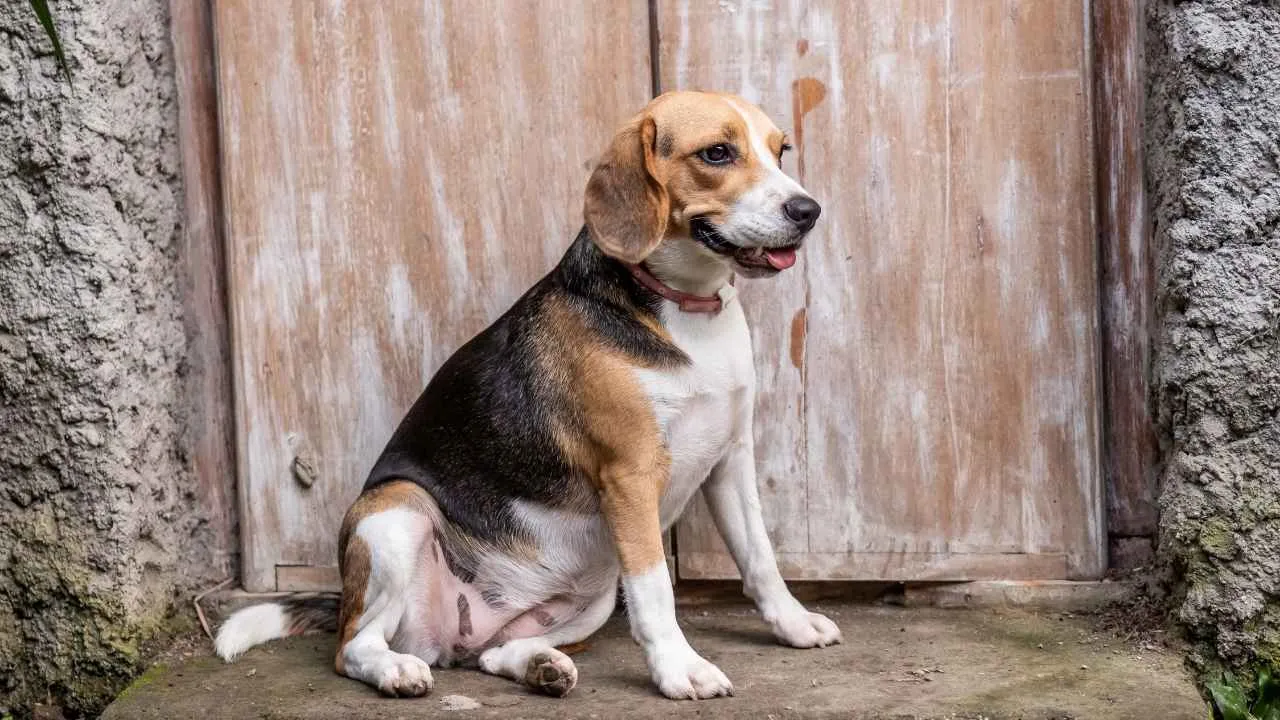
Beagles are joyful dogs with gorgeous floppy ears and bright eyes, and make amiable pets. Their hunting skills are also referred to as “beagling”, according to Britannica. They normally hunt prey like rabbits or hares.
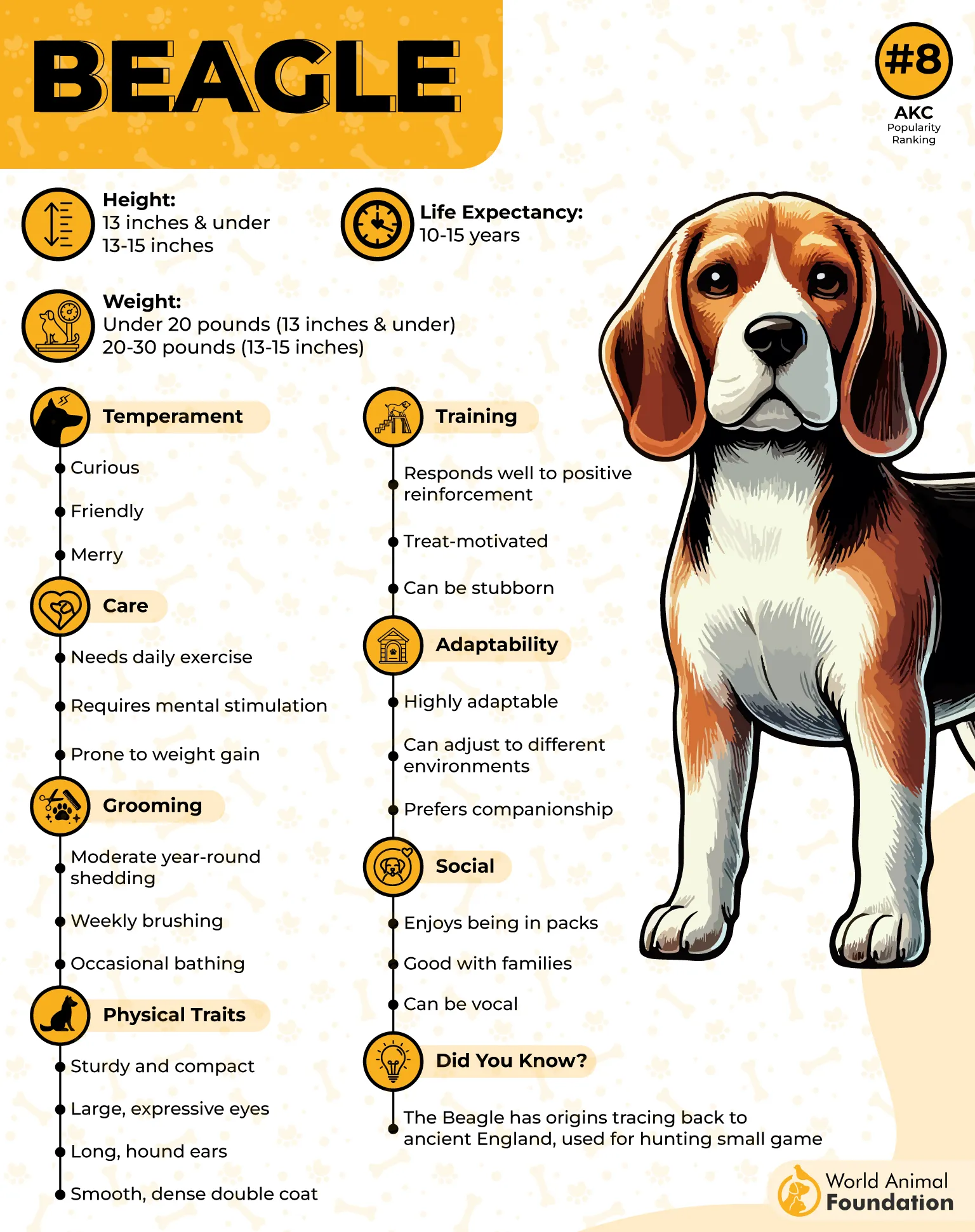
Quick facts:
-
Size: under 13-15 inches. 20-30 pounds.
-
They’re often used in U.S. Customs and Border Protection to track prohibited agricultural products and food items through their scenting skills.
Beagles are mostly low-maintenance dogs, but not without their quirks. They have a thing for prison breaks and can try to climb over fenced yards. Off-leash walks might not be the best idea for them.
Not all Beagles react to car rides the same way. Some are super-okay with them, and others can suffer from motion sickness.
Some symptoms of carsickness to watch out for (other than vomiting) are drooling, whining, and restless behavior. Your puppy Beagle is more likely to suffer from this as their inner ear isn’t fully developed. Using seat belts and booster seats will help reduce this problem.
7. Pug
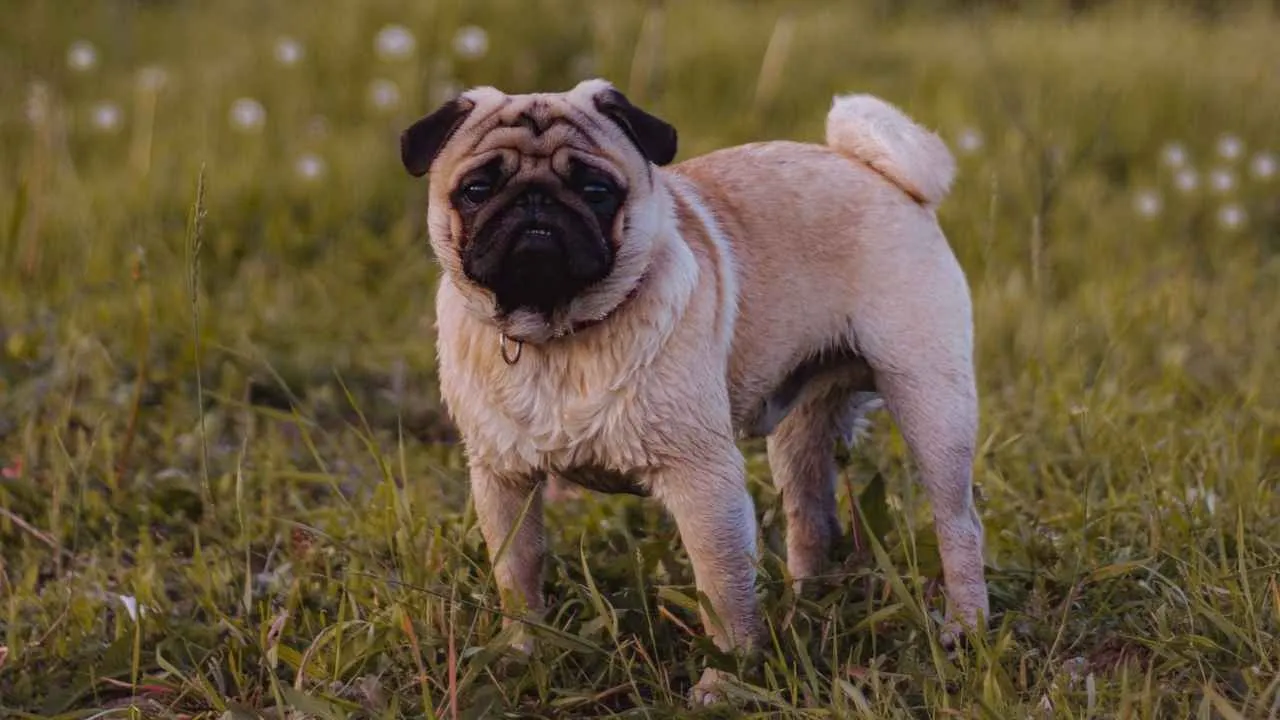
Pugs are really adorable dogs with small but sturdy bodies and wrinkly but flat faces. They’re likely to suffer from carsickness due to their brachycephalic faces, like French Bulldogs.
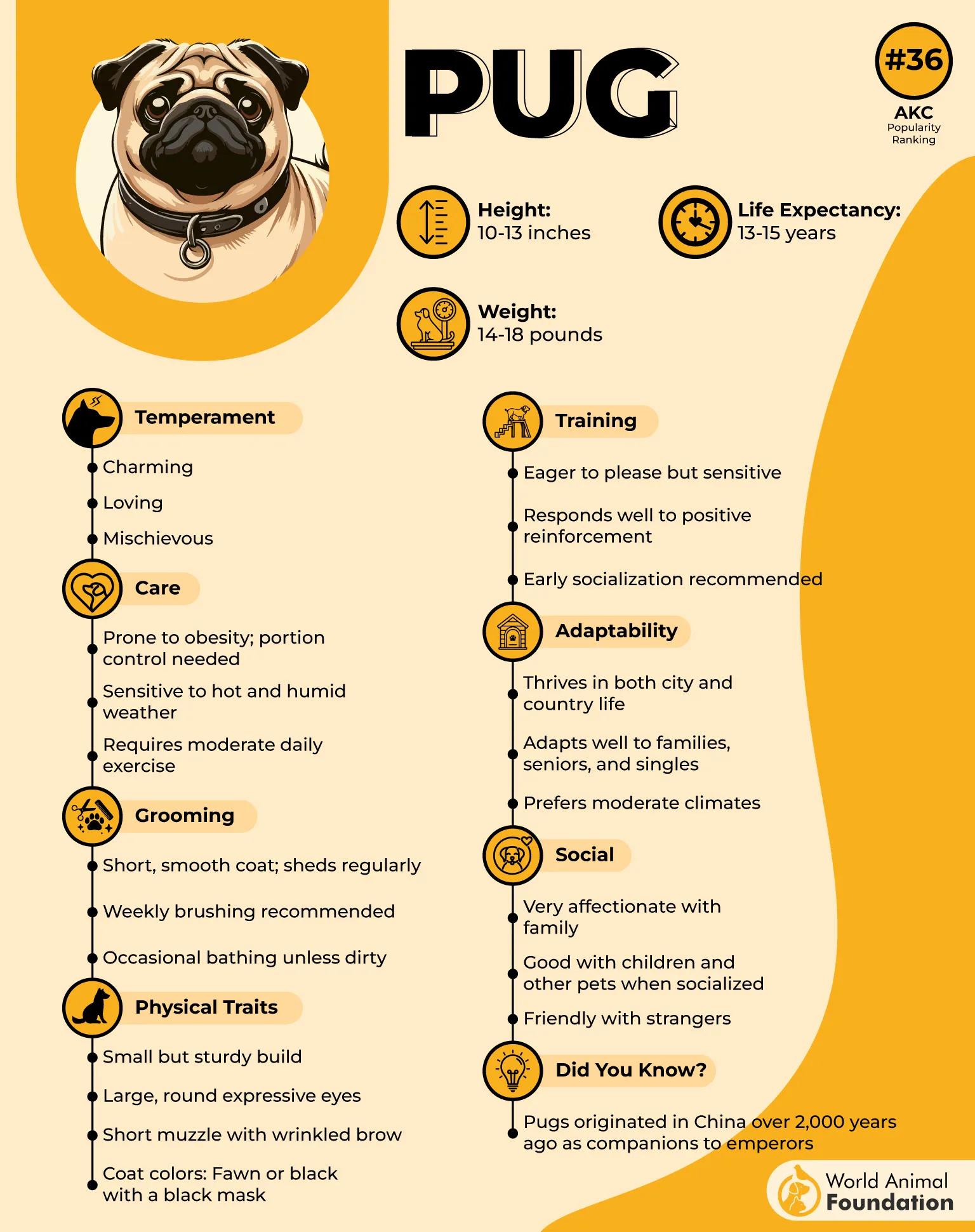
Quick facts:
-
Size: 10-13 inches tall. 14-18 pounds.
-
They can be all black or have fawn coats with black muzzles and ears.
Pugs make friendly pets as they are bred to be companion dogs. They are amazing around children, but as they’re small dogs, they can accidentally get hurt, so it’s important to train the kids as well. They’re not great watchdogs due to their chill nature; they’re more suited to be gentle lap dogs.
While taking a small pup on car rides can be convenient in some ways, due to their size, such dogs may struggle with balance. Seat belts and dog carriers or crates can help with this problem.
Conclusion
Any dog breed can suffer from motion sickness depending on their training and how much they’re accustomed to car rides. If you see signs of motion sickness in your pup often, it’s good to consult with a vet and get them checked.
However, using specialized dog crates and elevated seats may help to lower car and motion sickness in a few dogs. Older dogs are comparatively more prone to car sickness as compared to their younger counterparts.


